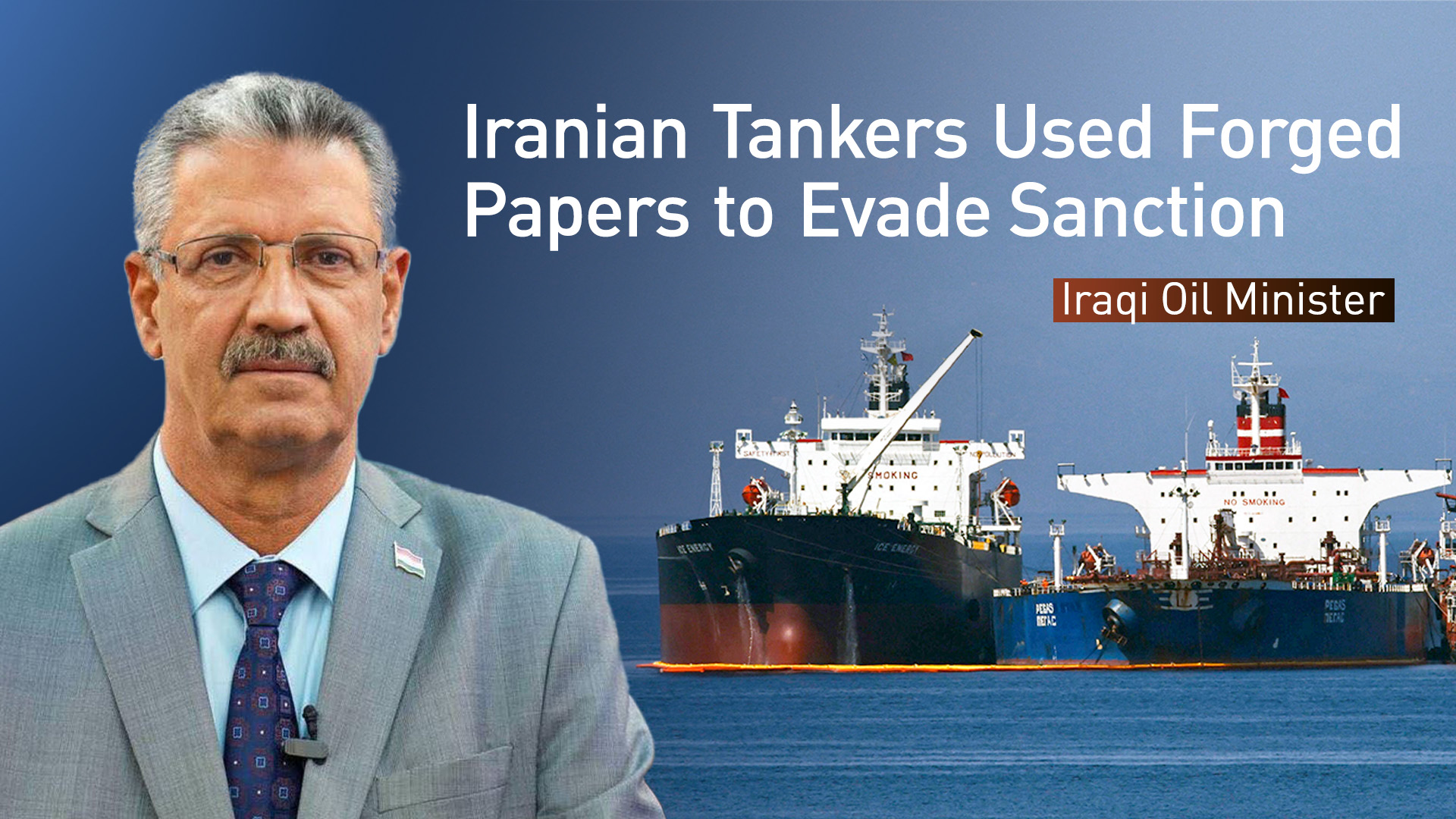Iraqi Oil Minister: Iranian Tankers Used Forged Papers to Evade Sanction
The Iraqi Minister stressed that the Iraqi government had immediately informed U.S. authorities of the incident and denied any involvement, underscoring Baghdad’s commitment to transparency and legal compliance in global oil exports.

ERBIL (Kurdistan24) – In a statement addressing regional tensions and oil sector integrity, Iraqi Oil Minister Hayan Abdul Ghani revealed that Iranian commercial tankers had used falsified Iraqi documentation to evade international sanctions.
Speaking at a press briefing on Sunday, Abdul Ghani stressed that the Iraqi government had immediately informed U.S. authorities of the incident and denied any involvement, underscoring Baghdad’s commitment to transparency and legal compliance in global oil exports.
A previous investigative report by Reuters had shed light on this issue, revealing that Iranian oil had been smuggled using falsified Iraqi documents and covert ship-to-ship transfers. The investigation uncovered leaked emails and satellite images showing that Iranian crude was rebranded as Iraqi, with the involvement of Iranian company Sahara Thunder and suspected collusion from Iraqi intermediaries.
Read More: 'US May Sanction State Oil Company, Central Bank,' Iraqi MP
One prominent example involved the tanker 'Remy', which was officially registered as loading in Iraq but had actually picked up Iranian oil at sea. Although Iraqi authorities have denied complicity and attributed the incident to forged documents, the recurrence of such practices suggested either corruption or significant oversight failures.
The scandal raised the specter of U.S. sanctions against Iraq and posed risks to its oil-dependent economy while straining ties with Washington and nudging Baghdad closer to Tehran.
This revelation comes at a time when Iraq is intensifying its efforts to enhance transparency, diversify export destinations, and modernize its oil and gas sector.
Against this backdrop, Iraq is intensifying efforts to enhance transparency, expand export markets, and modernize its oil and gas sector. Iraqi Oil Minister Abdul Ghani confirmed that Iraq aims to export 350,000 barrels per day (bpd) via Turkey’s Ceyhan port, signaling a potential resumption of flows through the Iraq-Turkey pipeline after months of disruption.
The minister noted that the federal budget has allocated $16 per barrel for oil production in the Kurdistan Region, while the Rumaila oil field currently produces approximately 1.4 million bpd. He also disclosed that Iraq had officially informed OPEC that the Kurdistan Region’s output stands at 286,000 bpd. Abdul Ghani reiterated Baghdad’s long-term commitment to investment in both the oil and gas sectors.
Highlighting steps toward increased transparency, the minister detailed measures implemented by the State Oil Marketing Organization (SOMO), including satellite tracking of all oil tankers, mandatory contracts specifying the final export destination, and monthly public reports on export volumes and revenues. “We work with full transparency and offer facilities to all efficient companies working to develop our oil fields,” he emphasized.
Looking to the future, Abdul Ghani announced that Iraq is exploring the potential of exporting oil to African markets as part of a broader strategy to diversify beyond its traditional customer base. Currently, around 70% of Iraqi oil exports go to Asia, with China and India as the top buyers.
Regarding Iraq’s licensing rounds, the ministry now holds 44 contracts involving 14 provinces, with Basra securing 12 of those deals. The minister emphasized the use of transparent bidding mechanisms in these rounds. Addressing recent concerns over the absence of U.S. firms in new contracts, Abdul Ghani clarified that ExxonMobil had voluntarily withdrawn from the West Qurna 1 field and that contracts were awarded strictly on technical merit.
Despite the lack of new U.S. participation, American and European technologies continue to play a significant role in Iraq’s energy development. Abdul Ghani also reaffirmed Iraq’s alignment with OPEC policies, noting that eight major member countries are participating in voluntary production cuts to stabilize global oil markets.
In a move toward energy diversification, the minister confirmed that the French company TotalEnergies is on track to deliver a solar power station in Iraq with a capacity of 1,000 megawatts. The project reflects Iraq’s growing interest in renewable energy as part of its broader energy reform strategy.
As Iraq works to reclaim its leadership in global energy markets, Abdul Ghani’s statements signal a push toward greater accountability, transparency, and diversification—both in energy production and export destinations. At the same time, Baghdad's exposure of the forged documentation used by Iranian tankers underscores the delicate balance Iraq must maintain in a region fraught with political and economic rivalries.